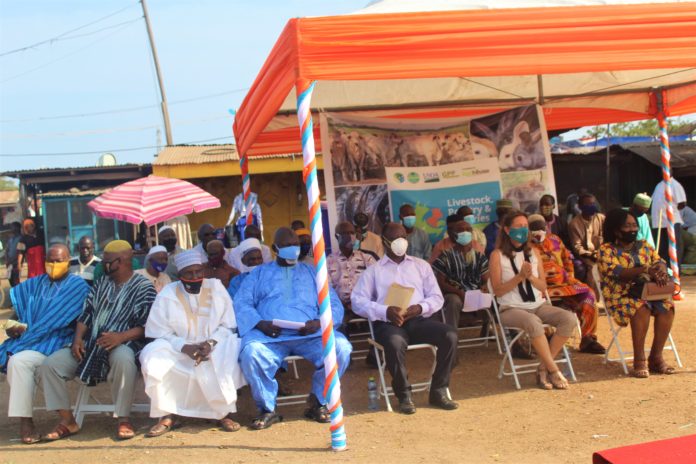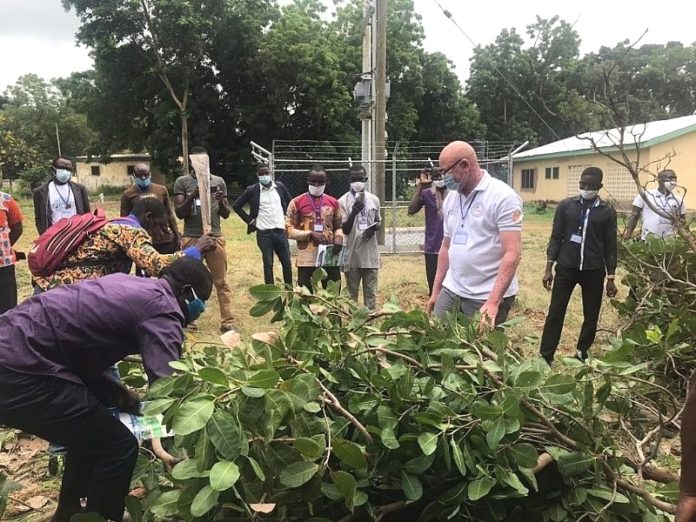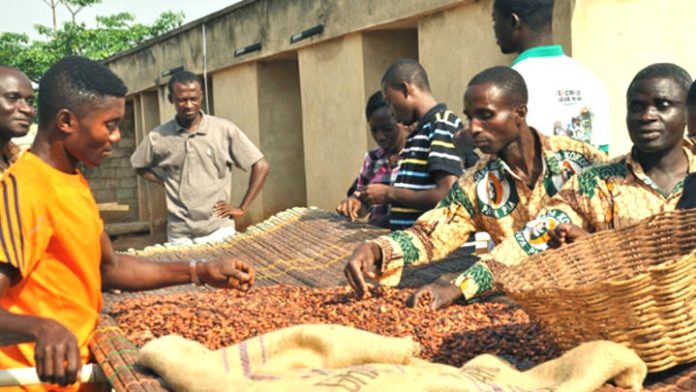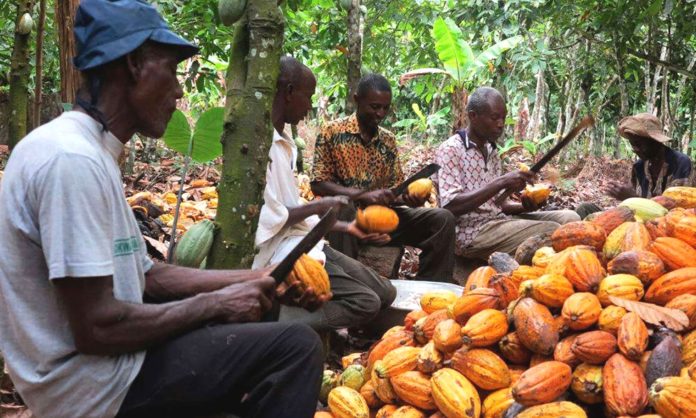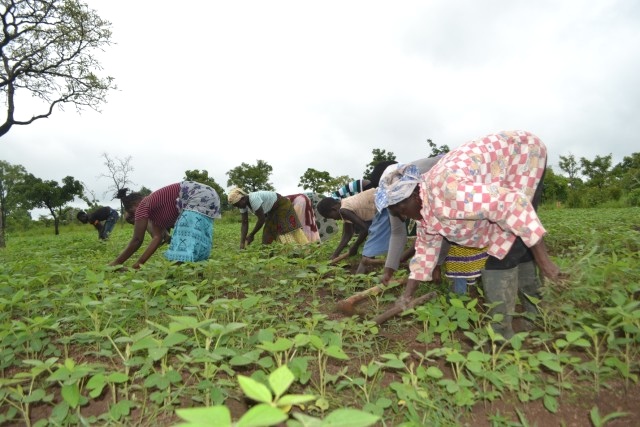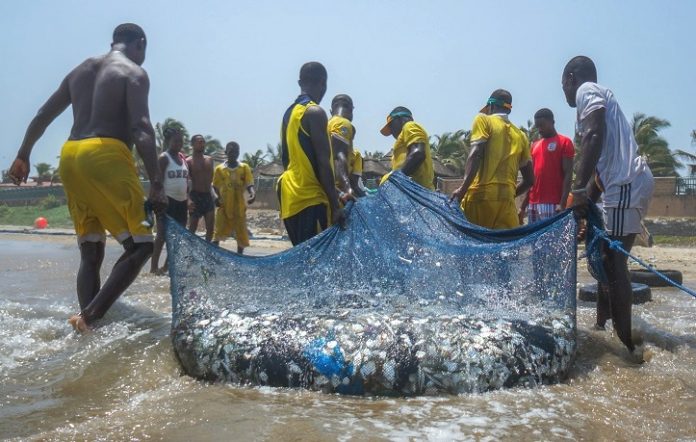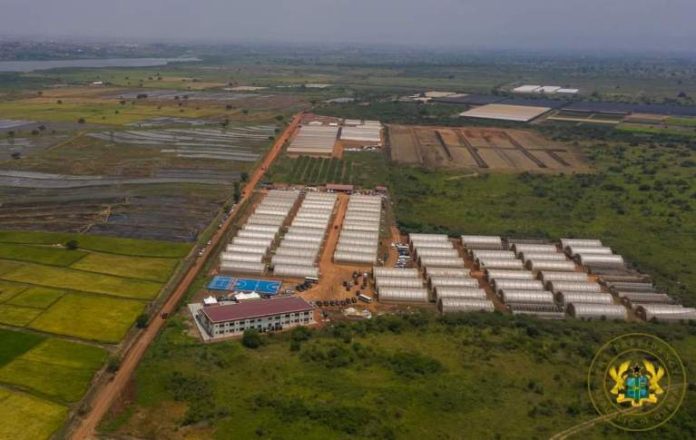The 2nd maiden edition of the Livestock, Poultry, and Fisheries Tradeshow (LiPF) with the theme “Step Up” has been launched at Tuleku, Accra.
GIZ trains Agriculture Extension Agents on Topworking Technology.
The Deutsche Gesellschaft für Internationale Zusammenarbeit (GIZ) GmbH held a 2-day training of Agricultural Extension Agents (AEAs) in the Upper West, Savannah and North East Regions of Ghana to improve on the productivity of unproductive and over-aged cashew plantations using a technology named “Topworking”.
BREAKING: Cocoa farmers to receive huge payment in October.
Cocoa farmers are to be paid hugely for their hard work starting from the next cocoa season in October 2020. This was pronounced by the Vice President, H.E Mahamudu Bawumia on one on one interview with the Chairman General, Kwame Sefa Kayi at Peace FM, Accra.
COVID-19: German NGO calls for application to support young businesses.
Enpact e.V, a German Non-Governmental Organisation (NGO), has opened applications for businesses to receive financial, mentoring, and technical support to deal with challenges associated with the onset of COVID-19.
Ghana Agricultural and Rural Development Journalists Association launches Cocoa Advocacy Initiative.
The Ghana Agricultural and Rural Development Journalists Association (GARDJA) is pleased to announce the rolling out of a new cocoa advocacy initiative aimed at helping create a sustainable cocoa value chain in Ghana.
GITAC forms signage with the Chamber of Agribusiness Ghana to harness the accessibility of funds, trade, and technology in the Agric sector.
The Ghana-India Trade Advisory Chamber (GITAC) has signed a Memorandum of Understanding (MoU) with the Chamber of Agribusiness Ghana at the Ministry of Business Development’s conference room, Accra to harness the accessibility of funds, technology, and trade to boost production in the agriculture industry.
Farmers want cocoa price increased to GH¢700 per bag.
Cocoa farmers have appealed to Ghana Cocoa Board (COCOBOD), the industry regulator, to increase the producer price of cocoa beans in the coming 2020/2021 season by a significant margin.
Solidaridad to create credit opportunities for rural farmers.
Solidaridad, an International Development Organization, through its Satellite for Business project, an interactive digital platform, is facilitating access to finance for smallholder cocoa and oil palm farmers. The project is providing farmers’ credit scores to lending institutions to aid credit decisions.
Fishermen in WR petition the President to abolish ‘Saiko’ fishing.
The Western Regional branch of the Ghana National Canoe Fishermen Council (GNCFC) has appealed to President Nana Addo Dankwa Akufo-Addo to bring to end activities of industrial pair trawlers engaged in illegal transshipment of fishing in the Ghanaian waters.
President Akufo-Addo outdoors the biggest greenhouse project in West Africa.
The National Entrepreneurship and Innovation Programme (NEIP) Greenhouse Estate Project, West Africa’s biggest greenhouse project, was officially outdoored yesterday at Dawhenya in the Greater Accra Region by the President, Nana Addo Dankwa Akufo-Addo.

